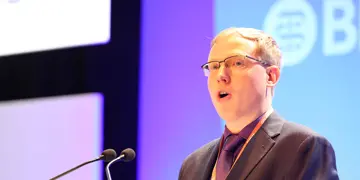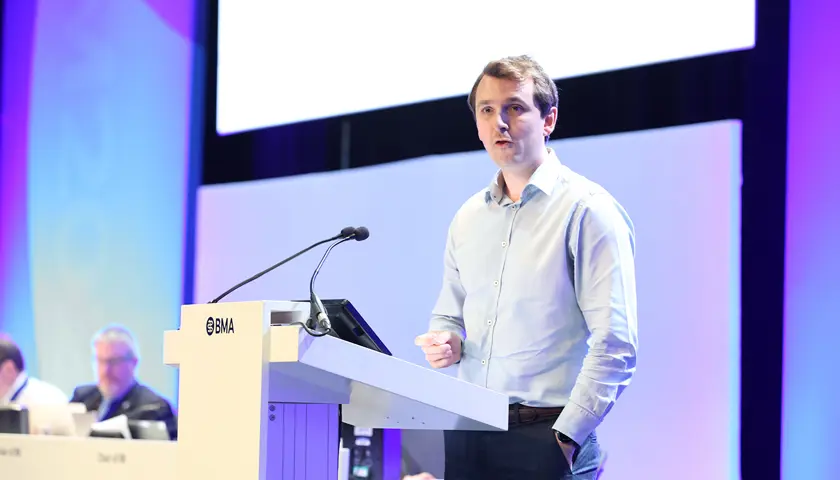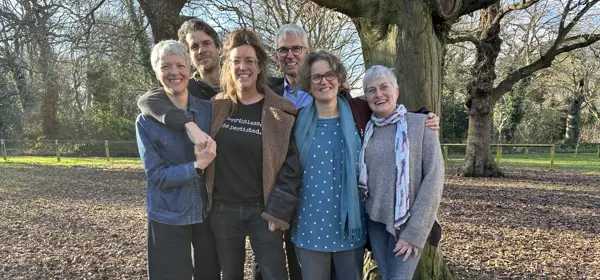Doctors ‘must not be substituted’ by MAPs, insists BMA
Doctors ‘must not be substituted’ by MAPs, insists BMA
Calls for public inquiry into ‘patient safety scandal’
The BMA is demanding MAPs (medical associate practitioners) are not used as a substitute for doctors in the NHS and is insisting on a pause in recruitment and deployment of PAs (physician associates).
Doctors overwhelmingly voted in favour of a motion at the BMA annual representative meeting that also affirmed the use of the BMA’s traffic light system for MAPs and that MAPs must not prescribe or see undifferentiated patients.
Appropriate training must be offered to doctors supervising MAPs, the motion says, adding that doctors who refuse to supervise non-medical practitioners should be supported.
Further, it calls for an ‘urgent’ public enquiry into reports that MAPS have worked outside of their competence including incidences of inappropriately signing prescriptions and requesting ionising radiation and affirms that doctors have a moral and professional duty, under GMC Good Medical Practice, to raise concerns about any effect on or potential effects on patient safety.
Samuel Parker (pictured above), a GP in the north-east of England and a member of the BMA’s MAPs steering group who tabled the motion, noted that the 1983 Medical Act prohibits the representation of a non-doctor as a doctor yet there have been ‘countless, unforgiveable examples’ such a recent NHS poster campaign with the wording ‘the physician will see you now’.
Concerns raised
He explained that the legal action the BMA is taking against the GMC was in response to the ‘uncontrolled erosion of the medical profession’.
‘Patient safety regarding MAPs, including reports of MAPs working beyond their competency, have been repeatedly raised by doctors, patient groups and MPs. Tragically, patients have died.’
He argued that using MAPs reduces capacity to employ doctors, and that low-funded practices are more likely to rely on PAs, which ‘only worsens health inequalities’.
Dr Parker added that PAs are not even necessarily cheaper than GPs, highlighting one job advert for a £90,000 per year locum PA role.
More importantly, he highlighted how degrees in English literature and homeopathy were being allowed to fulfil entry requirements for PA courses.
‘It takes ten years to fully train a GP,’ he said. ‘In contrast it is two years for a PA. No one would board a plane flown by a pilot with 20 per cent training, so why put underqualified MAPs on to NHS patients.’
Negligence payments
Dr Parker quoted a number of studies which showed how the use of PAs did not reduce GP workload, increased the likelihood of diagnostic error and caused greater concerns about referrals from non-doctors.
‘This ultimately increases NHS expenditure and risks patient safety,’ he said, noting the rise in clinical negligence payments and the burden on doctors’ time to supervise MAPs.
He said the money committed to MAPs in England outweighed the amount given to the training of NHS staff, creating a ‘major threat to the sustainability of your NHS’, adding that the additional roles reimbursement scheme can be used to employ MAPs but not doctors.
‘The best way to control costs is to improve patient safety, and that means employing doctors not MAPs,’ he told the BMA’s representative body.
‘Taxpayer-funded NHS resources have been misdirected, stopping patients from seeing a GP.’
Dr Parker pointed to how the government dropped its commitment to employ an additional 6,000 GPs, adding: ‘From August, there will be 7,000 under or unemployed GPs, yet patients still struggle to attain a doctor’s appointment.’
‘If we want to prevent future scandals, we must never lose site of our patients. The NHS, medical royal colleges, GMC and government must stop shooting the messenger raising patient safety concerns.
‘MAPs are simply no replacement for qualified professionals and we must not be complicit in this patient-safety scandal.’
No one spoke against the motion, which was carried almost unanimously – with more than 99 per cent of members voting in support.
Charter breach
Earlier at the meeting, a motion calling for the BMA to formally complain to the Charity Commission that the GMC has breached its charitable charter by agreeing to regulate PAs.
Buckinghamshire anaesthetist Tom Hine-Thomas noted that since the 1858 Medical Act the difference between a doctor and a non-doctor should be distinguished.
He noted how the GMC applied for charitable status in 2001, doing so on the basis that it should be eligible because it serves a public interest ‘by ensuring that only properly qualified people are registered as medical practitioners by promoting high standards in medical education’.
One of its charitable objectives required the GMC to promote and maintain confidence in the medical profession.
‘Clearly the regulation of MAPs falls outside of this object, and outside the reasons the GMC was able to get charity status in the first place,’ Dr Hine-Thomas said.
As of April 2024, the Charity Commission has agreed to carry out an assessment, following a complaint by the campaign group Anaesthetists United, which could potentially lead to a full statutory inquiry.
He said the motion would ‘send a really strong message to the GMC that we believe as a profession that it is acting outside of its original principles’.
Members of the BMA’s representative body voted strongly in favour of the motion, making it BMA policy.
Doctors have been asked by the BMA to sign an open letter to party leaders, expressing grave concerns about the risks posed by medical associate professionals, as currently deployed, in the NHS.
Its calls include the implementation of a national safe scope of practice for MAPs underpinned by robust evidence and regulation, an end to widespread doctor unemployment and replacement, and a halt to any current plans to provide MAPs with prescribing responsibilities.




